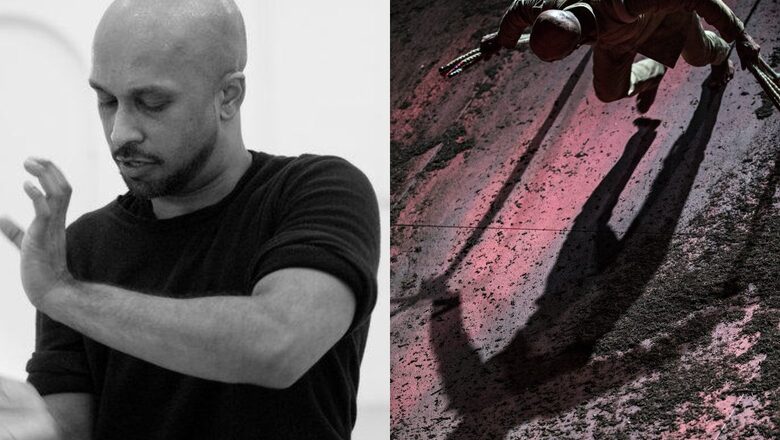
views
The show XENOS explores the little-known story of a colonial soldier in World War I in an intense and passionate manner. Through dance, music, and stage design, Akram Khan presents a fresh and thought-provoking position on the sometimes ignored fate of soldiers from the Indian subcontinent who served for Britain in the war. The award-winning dance theatre piece XENOS, performed by the Akram Khan Company, will have its final performances at the Jamshed Bhabha Theatre of the National Centre for the Performing Arts (NCPA) in Mumbai on June 24 and 25, 2023.
A post shared by Akram Khan Company (@akramkhancompany)
In its portrayal of an Indian dancer whose body turns into a weapon of war, XENOS illuminates the beauty and horror of the human condition. Akram worked together with German designer Mirella Weingarten, award-winning lighting designer Michael Hulls, costume designer Kimie Nakano, and composer Vincenzo Lamagna in addition to dramaturg Ruth Little and celebrated Canadian writer Jordan Tannahill. Additionally, he will collaborate with the following five foreign musicians: saxophonist Tamar Osborn, violinist Fra Rustumji, bassist Nina Harries, vocalist Aditya Prakash, and drummer B C Manjunath.
Excerpts from the interview:
You began dancing when you were like 7 and you still continue to do so. What does dance mean to you right now?
I think the one thing that never changed is my curiosity and love for dance. I love it as much as I loved it when I was a child. There’s a sense of energy that transmits through movement that is universal and that crosses all genres. So dance for me is very, very important right now, much more than when I was a child, You know, as a child, it was an entertainment, it was a sense of identity. It was a sense of being recognized. As I grew up, I realized through my teenage and late teenagers, and then of course with the when the company was formed, it was more about finding my voice and suddenly understanding what my voice is and what I could do with my voice.
You have been an associate artist or stage choreographer and have taken all these roles throughout your years of performing dance. So if I may ask you, one of these shows that’s really precious for you, which one would that be?
I don’t have one particular work that is precious to me. The ones I keep close to me are the ones that were really bad, like, the duet I made with Juliet Benache. That for me was a really bad work and I felt. I’ve always kept that close to me because that is that work I learnt the most from, more than any of my other projects. I think Xenos means a lot to me, only because I’m retiring and only because it’s at NCPA and we’re finishing in India, my career. So it’s a big deal for me personally. On a personal level, it means nothing to other people, but to me it’s very it’s a big, big thing and because it’s a huge chapter of my life that that will close now.
A post shared by Akram Khan Company (@akramkhancompany)
So Xenoz was initially performed 5 years back. So although you are well known for your contemporary style of dancing, your initial training remains to be in Kathak. This is like a deliberate decision that will give a tribute to the Indians who fought during the war?
As the audience are coming in, there is a concert happening and it’s an Indian classical singer with Aditya Prakash with a Manju Manjunath. Unless they’re really specialized in Indian music, they won’t go and see it necessarily. They’ll come and see me, but they won’t go and see that. So I was a bit like, well, actually I’m gonna force them to see. I want to take, I want to be in control this time, not the other way around. So I mean, they can always leave, so I’m not completely in control, but this sense of that. I think the important question is who are my audience? Who do I see as my audience? The person I see as my audience is me. And there’s 1000 seats, then there’s 1000 me watching the performance. So I’m making the work for me. What moves me? What triggers me? What inspires me? So I tried to make work in that way. So home for me is Indian classical music and dance. So that’s always been my basis. So I felt I want to start with that, you know, and it felt just appropriate, not appropriate, just felt right to have an Indian classical dancer who then becomes the soldier and fights for, represents his village and goes to war.
What's your reaction?



















Comments
0 comment